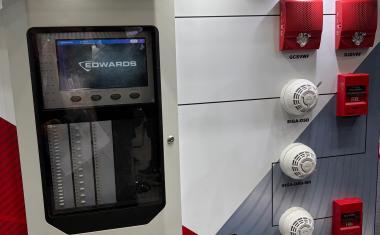ACI and IATA Collaborate to Deliver Smart Security
Airports Council International (ACI) and the International Air Transport Association (IATA) have signed a Memorandum of Understanding (MoU) jointly to develop Smart Security (Smart...
Airports Council International (ACI) and the International Air Transport Association (IATA) have signed a Memorandum of Understanding (MoU) jointly to develop Smart Security (SmartS). With the MoU, ACI and IATA can better align their resources and expertise to improve the journey from curb to boarding. Passengers will be able to proceed through security checkpoints with minimal inconvenience, security resources are allocated based on risk, and airport facilities are optimized.
SmartS replaces the Checkpoint of the Future. The name change reflects the start of a new phase of pilot testing involving first generation checkpoints. Since 2012, components of the Checkpoint have been tested individually. Under SmartS, several components will be tested together to see how they interact with one another in an operational environment. The renaming to Smart Security also signals the stronger ACI-IATA collaboration together with the strong participation of governments and other key industry stakeholders.
"Smart Security is the way forward. A lot has been learned from the component tests conducted over the last two years. It forms the foundation for us to move confidently into the next phase of the development. The MoU with ACI on Smart Security will deliver synergies by drawing on the collective expertise and knowledge that both organizations have built over the years," said Tony Tyler, IATA's Director General and CEO.
"A touch point in the passenger journey that triggers a sense of dread is the security check. Through Smart Security, ACI and IATA will drive the needed change. Airports, airlines, control authorities and system suppliers all have a role to play in making the process more effective, efficient and pleasant for the passenger. Smart Security brings these stakeholders together with the shared goal of transforming the security checkpoint for the benefit of all the traveling public," said Angela Gittens, Director General, ACI World.
The Checkpoint of the Future was launched in 2011. In 2012, IATA and ACI, together with several national regulators defined a roadmap for the future of passenger screening with blueprints for 2014, 2017 and 2020. The blueprints detailed proposals that are operationally achievable and technically feasible by that timeframe. This roadmap was adopted by the International Civil Aviation Organization (ICAO) High Level Conference on Aviation Security in September 2012.
Between 2012 and 2013, tests were conducted of the individual components in airports to assess how they would work in an operational environment, including Geneva Airport, London Heathrow, London Gatwick and Amsterdam Schiphol. From 2014, SmartS pilots will be conducted at airports to test multiple components working and interacting together. These airports include Amsterdam Schiphol and London Heathrow, and with the support and participation of their respective regulators and home carriers.
The focus for 2014 is on optimizing the security screening resources and asset utilization, integrating innovative technology and repurposing existing equipment, and implementing new procedures to facilitate risk-based screening and decision making.









